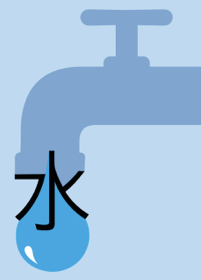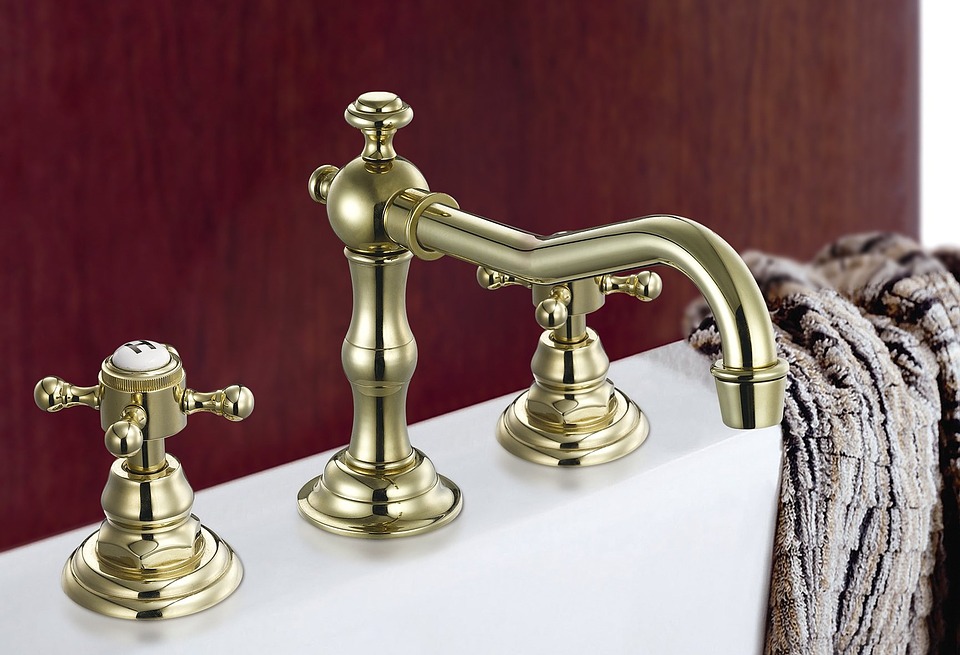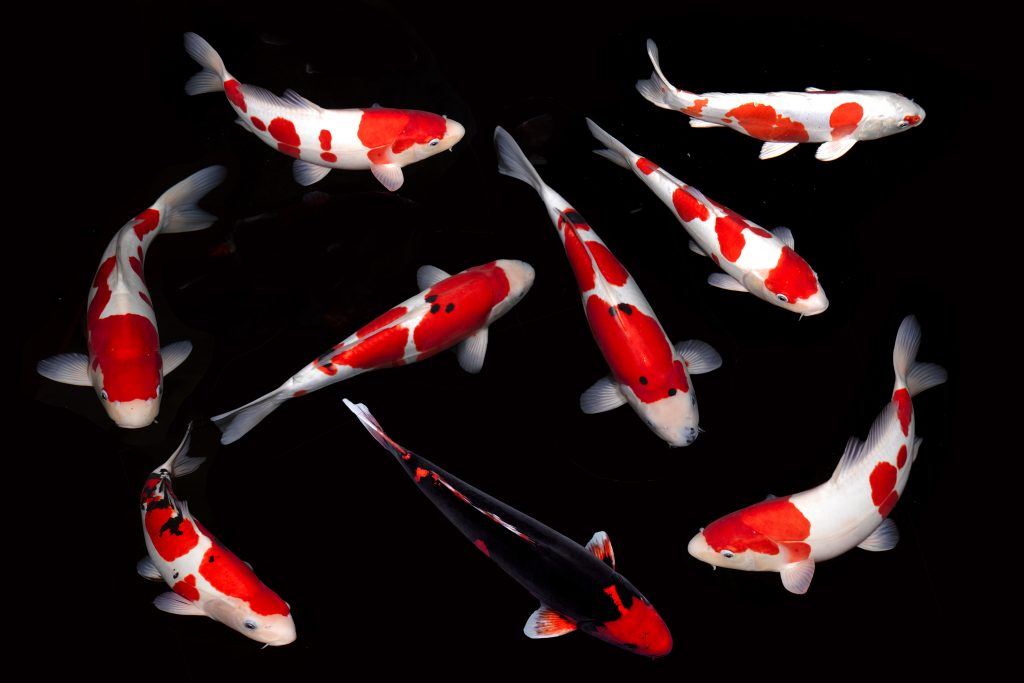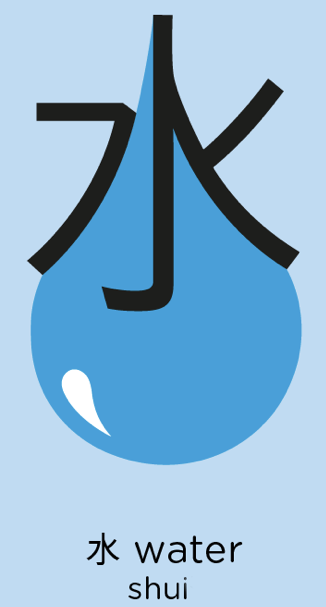Feng shui means ‘wind-water’
Shui = Water
‘Shui’ in feng shui translates as ‘water’ (feng = wind). Water is one of the most prevalent elements on this planet Earth. Actually, this planet should be called the planet Water since it’s covered by about 80% of water. Our bodies are mostly made of water (about 80%, some organs are even 85% of water). All cultures and traditions regard water as the key to life. While we can’t survive without air for longer than a few minutes, without water we can’t survive for longer than a few days.
Water and chi/qi
Classical feng shui suggests that energy or chi/qi gathers on the surface of the water and they were right. Charge which is modern physics is chi will be drawn to water. There is a huge emphasis on using water and water remedies in feng shui.
“Information is physical.” Rolf Randaur
Quality of water. Is your water safe to drink and bath?
The quality of water in your immediate environment is very important because it will affect you. More importantly, the water you drink and bath in is even more important, and you have a fair amount of control on what kind of water you will use in your home or workplace.
Aspects of drinking water

Drink pure water for health
Dehydration contributes to:
• brain cells shrivelling up
• enlarged ventricles
• brain working harder with poor results
• impaired cognition and attention
• forgetfulness and speech problems
Water plays a huge role in cells metabolism as well as helps regulate body’s temperature and maintain all bodily functions. We lose water through sweating, digestion and even breathing so it’s very important to rehydrate by drinking fluids and eating water-rich foods. When you’re dehydrated your performance will be greatly affected. So, drink enough water. How much? That depends on your lifestyle.
The common signs that you’re dehydrated are:
• dark coloured urine (most accurate and easy to do)
• headaches, cloudy mind
• dry mouth, dry skin, dry eyes or blurred vision
• fatigue, weakness and muscle cramping
Why deep sleep is important for detoxification?
Water is an important part of the detoxification process and flushing out toxins. During deep sleep, our bodies rejuvenate and detox so it’s a very important aspect of your health hygiene. Read more about how to feng shui your bedroom for optimum health
How to purify water
The whole house water purifier
The most common ways to purify water are a simple straining and purification, reverse osmosis, distillation, heating or boiling, disinfection tablets as well as ultraviolet germicidal irradiation, ozonation, filtration through plant material and solar disinfection. For practical home and office use, basic water purifies will do. Ideally, you should have a whole house water filter, because you absorb more chlorine from showering than from drinking water because of water droplets. I recommend this, one of the best whole house filtration systems in the UK. Mention my name (Jan Cisek) and you’ll get 15% off the price.
What about hard vs soft water?
There are pros and cons to hard and soft water.
What are common contaminants in drinking water?
The most common contaminants in drinking water are pesticides, chlorine, fluoride, bacteria, manganese, arsenic, sulfur, iron and pharmaceuticals such as the pill which is very difficult to filter from drinking water. Most good water filters will remove the most important contaminants from drinking water.
Avoid fluoridated water
How to test water for contaminants?
The simplest and most practical, the first method is just to smell and taste the water. Get a glass of water and cover it and after a couple of minutes, smell it. If it has a bleach smell, there is chlorine in the water. If it smells like rotten eggs, there might be bacteria growth or a high concentration of sulfate. It water tastes metallic, there is iron in the water system.
There are many water tests on the market for different contaminants. And you can send the water to a lab for analysis.
What is pH of your water?
Ideally, water should have a pH level between 7.0 and 9.5 because extreme levels might have a negative effect on your body. Studies show that acidic water can upset your stomach and cause ulcers and too alkaline water can lead to bone loss. There are simple test kits for measuring pH of the water on the market.
Feng shui water rituals and remedies
The most common feng shui water interventions are:
• fish tanks or aquariums
• fountains
• ponds
• water features such as birdbaths
• baths in the bathrooms
Why water features are used in feng shui?
The above water remedies are used to activate and boost specific areas of the feng shui bagua and attract positive energy/ qi to your home and workplace. In classical feng shui and ancient vastu, placement of water features such as wells, septic tanks, bathrooms, etc was very important from the hygienic perspective which now is less important since building processes and technology allowed for safer structures. For example, some people believe (incorrectly) that bathroom in the northeast part of the house is bad feng shui or vastu. In the old days, in most places in the western hemisphere northeast part of the house would be the coldest, hence there is a danger of mold and dump. Modern houses usually don’t have that problem any more. The general rule of thumb is to use water interventions for career and wealth creation. For specific use of the water features in your home or workplace ask your feng shui consultant.

Having a bath has a grounding and earthing effect
Your bathroom – how to feng shui your bathroom
One of the best aspects of a bathroom is a bath which will allow you to relax and ground/earth yourself and discharge stresses of the day. If you can afford, go for a Toto floatation tub, the ultimate for relaxation (to the tune of £27000) which gives a sense of weightlessness,’zero gravity position’ thanks to the hydrohands technology which produces a flow of air through water. Other high tech addons to explore are mood lightening fitted in a bathtub, digital controls in a shower, warming drawers for towels and self-cleaning loo. In short, bathrooms are about relaxation, earthing and detoxing.
Tubs are getting bigger, bolder and more expensive as a result. Homeowners invest in expensive, statement baths to increase the value of the property.
There are different types of baths:
• Floatation tubs (such as Toto, mentioned above)
• Outdoor baths – as the name suggest are for the outdoors, gardens
• Baths with a view – having a bath in front of the window is ideal or position centrally so you can see it when entering the bathroom to prime you for relaxation
• Infinity baths – similar to infinity pools, water constantly overflows into a tray below (check it out at British Airways First Class Lounge at Heathrow)
Feng shui fish – koi carp
Fish is symbolic of wealth in feng shui and many cultures and traditions. There are two ways to use and benefit from this archetypical symbol. 1) organise an aquarium or fish pond or 2) have a picture with koi carps. From my 30+ years feng shui experience, both methods work.

8 koi carps +1 black by Lea Minshull
Another popular feng shui lucky fish is arowana.

